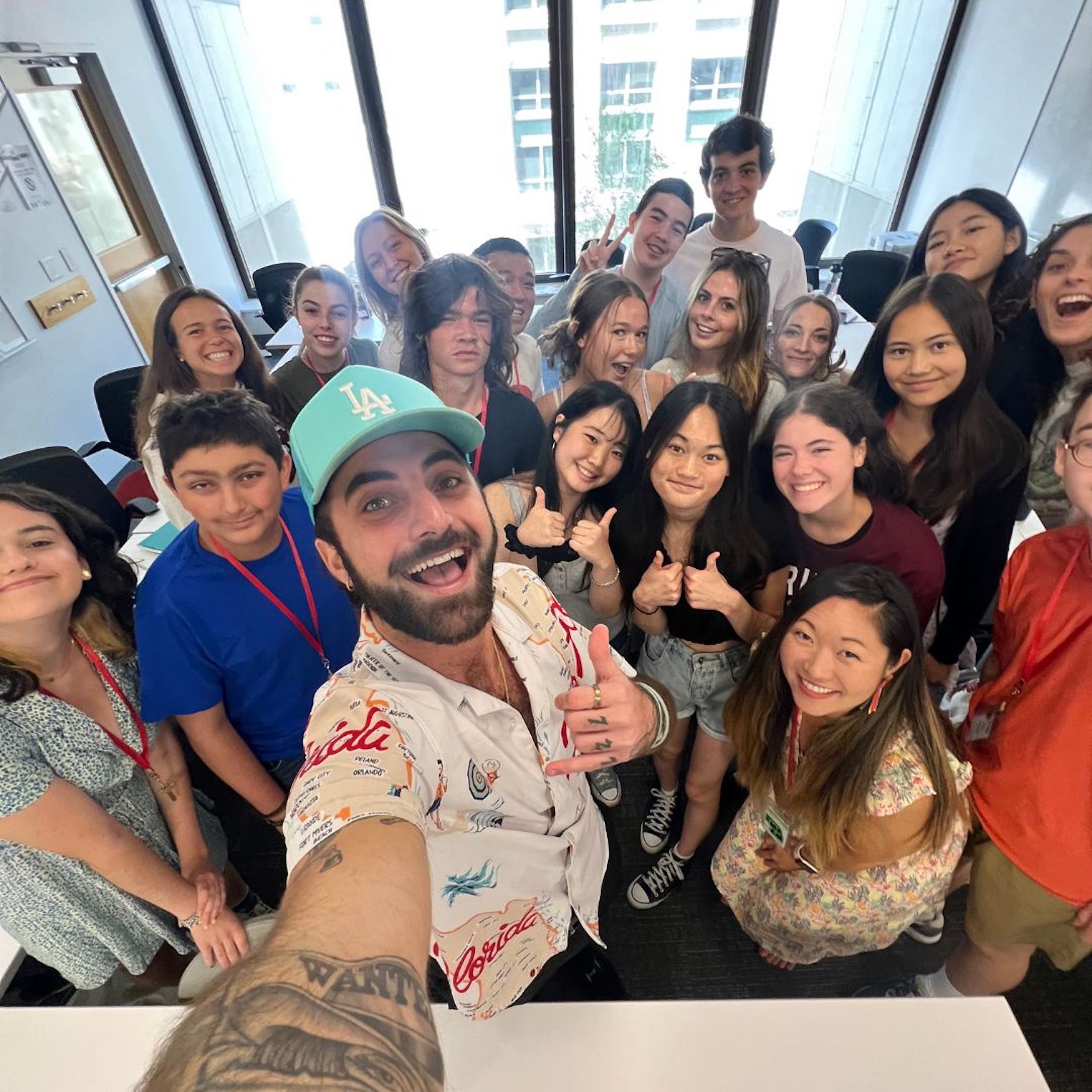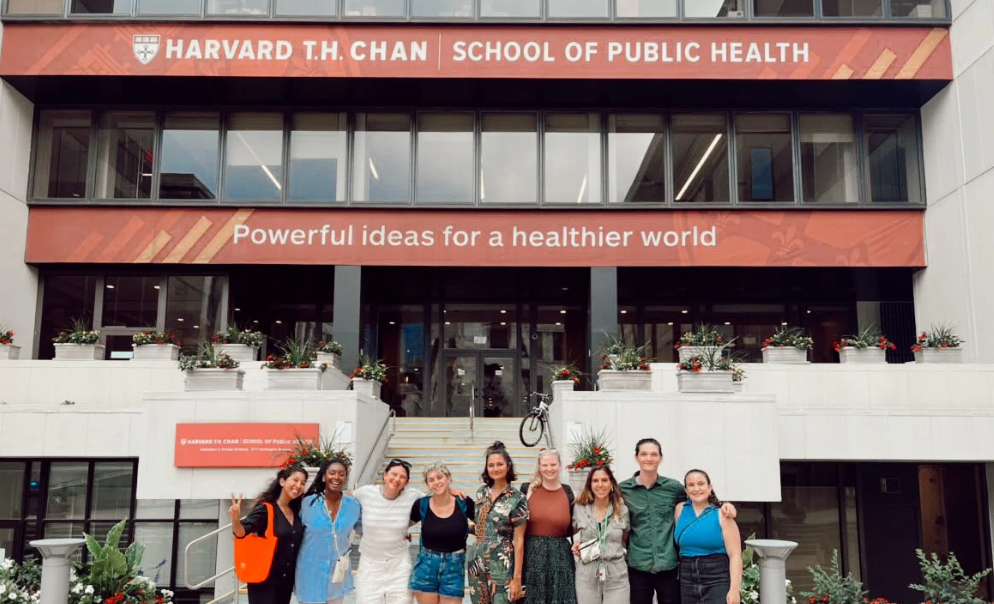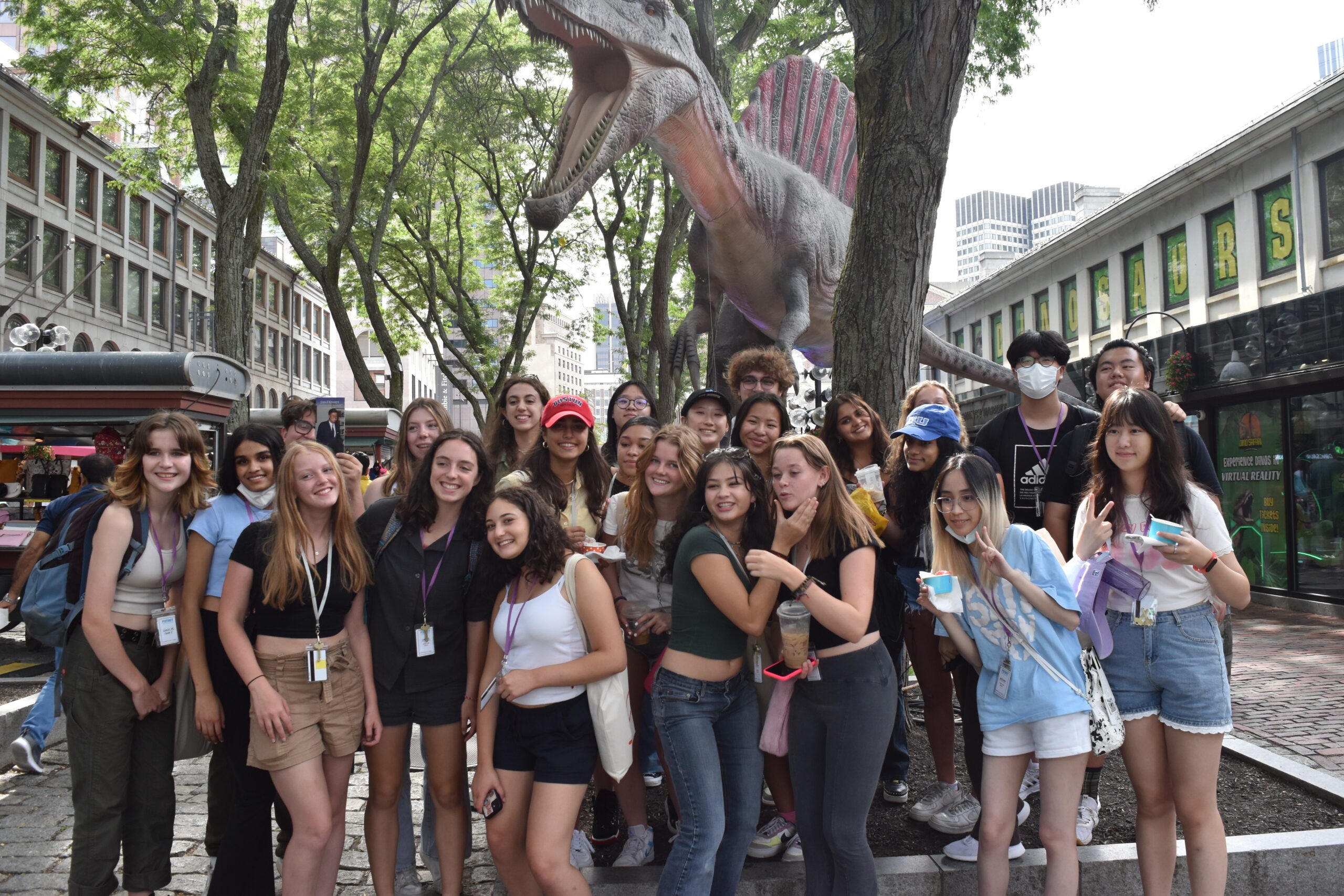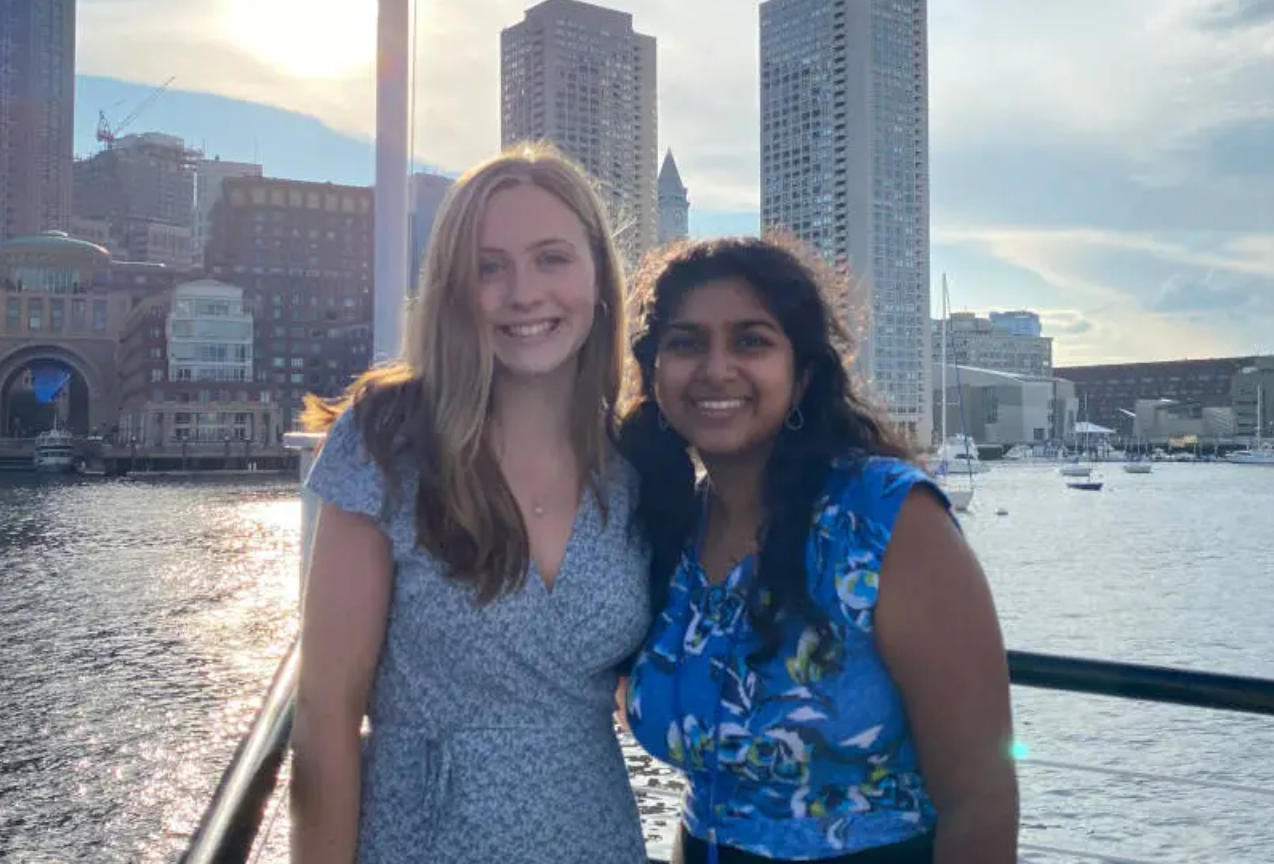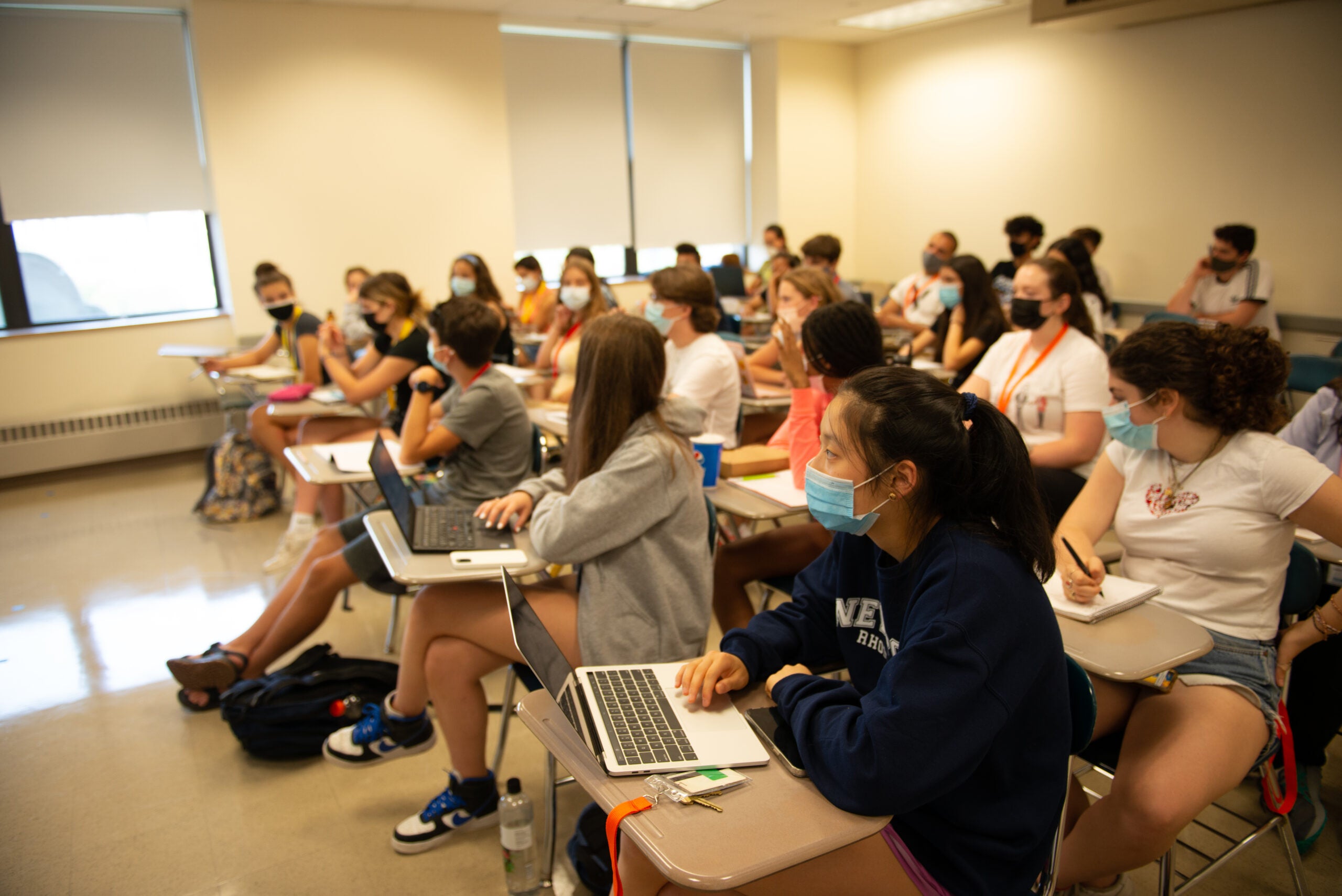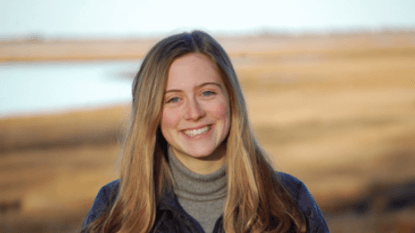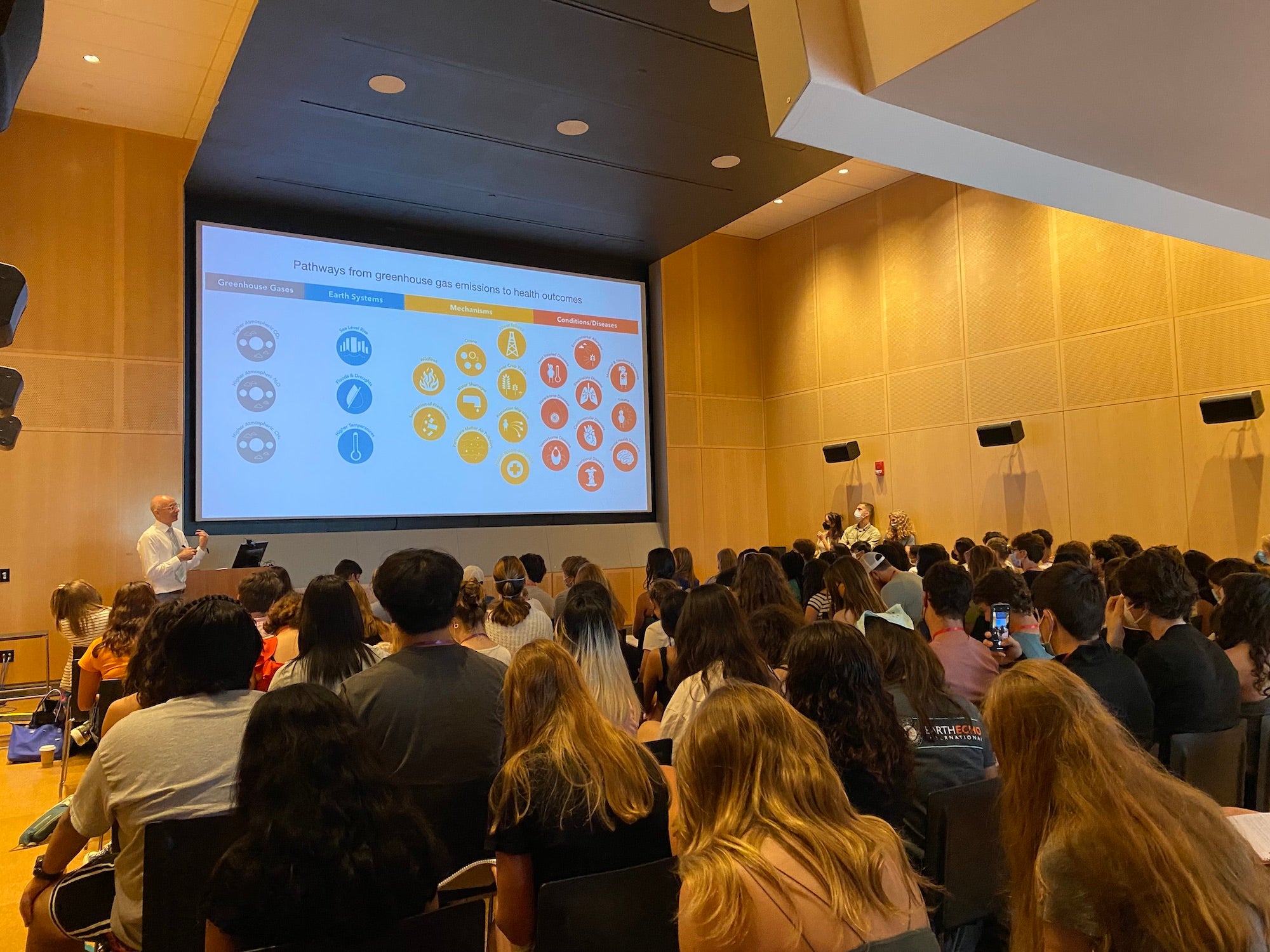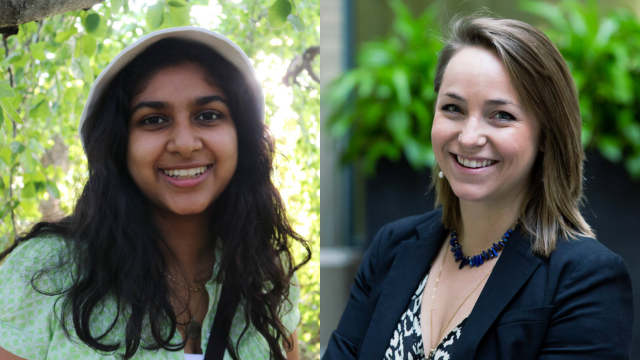By Ella Niederhelman
Traveling from over 25 states and nine countries, with different levels of climate education and involvement, 122 students met for the first time on July 24 at the Youth Summit on Climate, Health, and Equity at Harvard T.H. Chan School of Public Health.
Gina McCarthy, White House National Climate Advisor and co-founder of the summit kicked off the week by telling students she wanted to, “empower [them] to become the next generation of climate and health leaders.”
McCarthy emphasized her commitment to climate action saying, “I want you to know that I am hopeful, and I am not going to give up on your future — not now, not ever.”
The summit, hosted by the Center for Climate, Health, and the Global Environment at the Harvard Chan School (Harvard Chan C-CHANGE), followed a schedule that mimicked a professional conference. Each day students participated in small lessons from group leaders, group-wide organized conversations, and activities centered around the intersection of climate and health.
Students were organized into six action focus groups: climate communications, press, and media; climate science; entrepreneurship, industry, and tech; environmental justice; global health, epidemiology, and infectious diseases; and medicine and healthcare.
Each group heard from speakers that excelled in their fields and shared their expertise, knowledge, advice, and climate optimism with students.
Speaking of change…
Research shows the burning of fossil fuels, one of the main drivers of climate change, is causing scorching heat, extreme weather events, wildfires, and more. This leads to increased asthma attacks and allergies, worsening pregnancy outcomes, food insecurity, increasing mental health problems, and much more. Vulnerable populations, the elderly, children, people with existing medical conditions, and those living in low-wealth communities and near polluting industries are at increased health risks from the effects of climate change.
Speeches across the Harvard Chan School campus demonstrated these complex connections, and how actions that stop the burning of fossil fuels substantially improve air quality and provide immediate and localized health benefits.
Highlighted speakers included Dr. Howard Koh, Harvey V. Fineberg Professor of the Practice of Public Health Leadership at Harvard Chan School; Stephen Benjamin, former mayor of Columbia, South Carolina; Ilana Cohen, a current Harvard student and climate journalist; and Nadia Nazar, co-founder of the climate initiative Zero Hour.
A panel of well-known climate creators joined students for a Q&A, lasting much longer than originally anticipated to accommodate the high number of thoughtful student questions.
Classroom learning supplemented the time exploring Boston. From learning the foundations of mitigation and adaptation at Boston City Hall, to visiting the New England Aquarium, to meeting Boston Mayor Michelle Wu at her monthly broadcast, students’ interests matched with first-hand experiences.
At the end of the week, they presented capstone projects showing how they can implement climate actions in their own communities.
Students found their place
Prior to the summit, 70.37% of students ranked their understanding of the connections between climate change and public health as limited or basic. Following the summit, 95.3% of students’ understanding ranked at intermediate to advanced.
Student surveys showed that they increased their interest and ability to engage in climate action or activism in their own communities by 46.86%.
“Before participating in the program, I did not know any peers who were deeply committed to effective environmental advocacy,” said Yating “Tina” Tang, a New York senior in the climate science group. “Experiencing this program with so many like-minded teens gave me hope for our generation’s leadership in combating climate change.”
This feeling of unified action allowed students to branch out of their comfort zones, which led to new connections and enhanced their understanding of climate work.
Sydney Apple, a junior from New York, said, “It was so refreshing to be around people who care and want to make a difference.”
As the summit concluded, the U.S. Senate announced a deal to pass the Inflation Reduction Act (IRA), the country’s most significant action ever to address the health impacts of fossil fuels, giving students one more reason to feel optimistic.
The next generation of climate leaders returned home armed with a strong foundation of climate, health, and equity knowledge and how to put policies into action to build a better future for themselves, their peers, and for us all.
Ella Niederhelman is the communications intern for Harvard Chan C-CHANGE and an aspiring climate journalist currently at the Ipswich Local News. A junior in high school, she is a C-CHANGE Climate Ambassador and a GIS Fellow at Woods Hole Oceanographic Institute.

